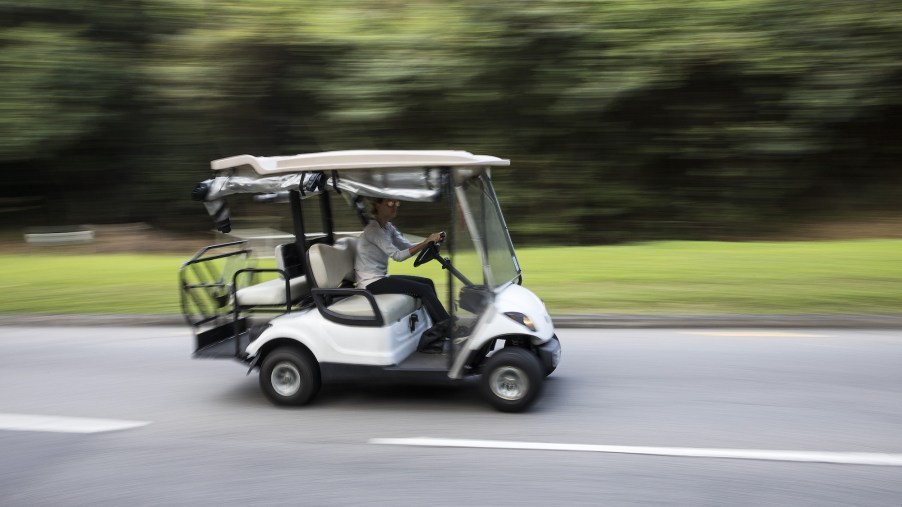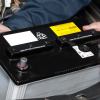
What States Allow Golf Carts on the Road?
If you’ve ever been to historic Charleston, South Carolina, you’ve seen golf carts puttering around Daniel’s Island, the farmers’ market, and other places in the scenic summer town. Golf carts are still legally used on public roads in many U.S. states for their convenience. But where these vehicles are legal, it matters how they’re used and how they’re built and equipped.
Which states allow you to drive a golf cart on the street? What are the requirements? We’ve got all the details.
States where golf carts are legal on public roads
You cannot drive golf carts legally on public roads in Delaware, Hawaii, Maryland, Missouri, or Rhode Island. New York takes it a step further by explaining that you could be arrested for operating a golf cart on public roads or sidewalks or in parking lots.
All other states allow the use of golf carts on public roads, but there are restrictions on usage that vary by state, Motor and Wheels reports. Some laws specify the use of golf carts, while others call them “low-speed vehicles” (LSVs).
The carts themselves also must be legal and meet all local, state, and federal requirements. On a federal level, they must have a vehicle identification number (VIN), lighted license plate, horn, and speedometer. They also must have working headlights, brake lights, and turn signals. And they should have interior and exterior mounted mirrors, along with tires, seat belts, and windshield wipers, approved by the U.S. Department of Transportation.
They also must be able to travel at least 20 mph but not over 25 mph on roads. The idea behind these speeds is that the vehicle should be able to go just fast enough not to interfere with regular traffic. But if it were to go faster, more safety regulations would be needed.
Larger states where golf carts are street-legal
What are the laws in larger states where golf carts are legal, like California, Florida, and Texas?
In California, golf carts must weigh less than 1,300 pounds and can’t carry more than two people, one of which is the driver. California also requires a safety-glazed windshield and fenders.
In Florida, you can drive a cart on public roads with a speed limit under 25 mph if you’re at least 14 years old and traveling at least 20 mph. You must have a special license to drive over 20 mph, and the cart will have to be DMV-registered and insured. Plus, Florida allows golf cart usage between sunrise and sunset only.
You may also drive on public streets with a maximum speed limit of 35 mph in Florida during daylight hours. You may cross a highway or street at an intersection, even if you’re crossing a street whose speed limit exceeds 35 mph.
In Texas, you can operate a golf cart only on local roads where allowed by individual county or local governments.
Know the laws in your state and locality
If you’re thinking about driving a golf cart on public streets, check your state and local laws. It’s also important to know if state police monitor the roadways where you intend to drive. That’s because the local government might allow you to use your golf cart on public roads, but the state might not.
If operating a cart is legal where you want to use it, make sure the model meets all federal requirements. Chances are that if the cart meets federal requirements, it’ll meet state mandates too. But do your homework, and leave nothing to chance.
Also, know if your local and state governments allow gasoline-powered golf carts. Some may require that you use an electric one. And check to see what kind of license plates you’ll need to have on the golf cart. Your state might require a reflective triangle sign on the back in addition to the license plate.
Finally, you might have to get the cart inspected, register it with the DMV, and insure it. Before you buy one, take a look at all of these factors to ensure the time and financial investment are something you’re willing to make. Above all, knowing the laws ahead of time can keep you out of legal hot water.


